In Search of a Search Business

It is time to think again about search, the technology that enabled us all to explore the www and what is considered by many as the glue that holds together the internet.
Google started it's business in 1998 and clearly build an empire on top of there search business. As of today, still the majority from revenue is coming in through the search business.
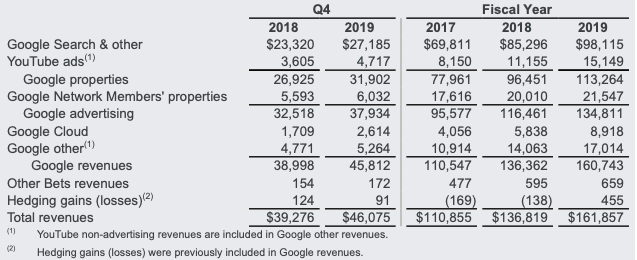
The business model remained unchanged for the longest period, Google is offering advertisers the option to buy slots on the search result page. With a global market share of 86% by April 2020, the business seems to be doing just fine.
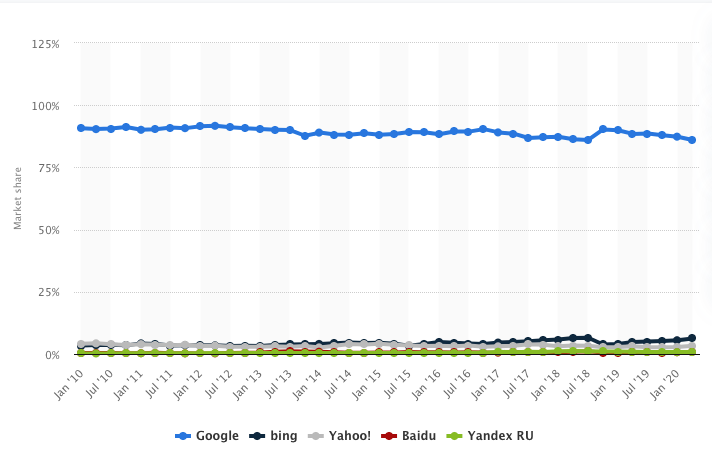
So why is it worth talking about a new search business model in a world where Google seems to be dominating with very little to worry about?
Because people have seemingly starting to change there behavior, or at least more and more founders and companies seem to believe so. To keep Wall Street at bay you need to find a way to ever increase your revenue and present a growth story.
For google this means mainly advertisement on search, and when you look into the Google search you will find that there are three important forces at play. There is the demand from consumers, which is seemingly slowing down. Google isn't sharing details on this anymore since 2012 but just have a look at those old data:
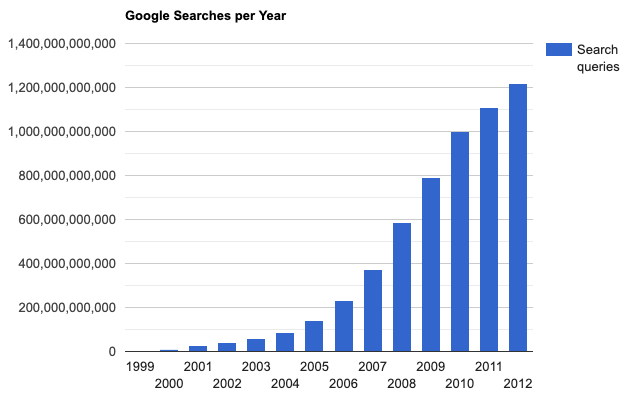
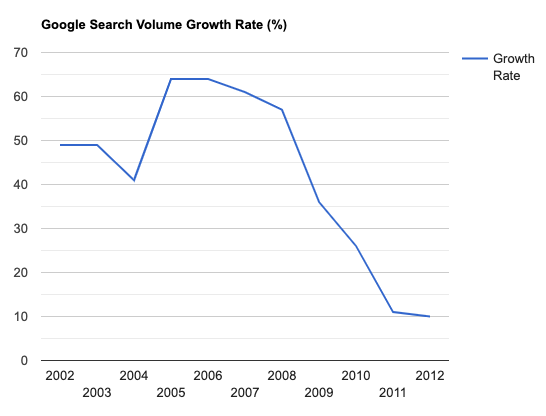
Pair this with insights that we have from the US market where 50%+ of the product searches start on Amazon these days, and we have a competition in other fields with Mobile and Voice Channels. It seems to be reasonable to assume that after 2012 the growth was not picking up tremendously.
The other force to drive further advertisement growth is to increase the clicks on the advertisement. This has been done quite extensively:

So they did a great job making the advertisements less and less distinguishable from organic results. But they didn't stop their, we have now Google Shopping, Flight Search, Hotel Bookings, Job Search.
The last force would be to increase the price for each click, which somewhat also is related to other segments but there are clear elements from Google that had a direct impact on this. For example adding more and more targeting mechanism is an important aspect to perfectly price discriminate. You might be willing to spend more for a search advertisement if the user is a customer of yours, or you are a specialized company running in only a small geographic and want to only advertise in a specific location.
What is the Alternative?
After getting a basic understanding on how Google is running its search business at the moment, It is now time to have a look into competition and how they try to position themselves.
Privacy
Many of the core business from Google is related to getting more out of customers, this is often times linked with knowing more about consumers. So creating a big pile of data about each individual user creates the ability to price discriminate and get the most from advertisers.
However, with recent events people seem to get more annoyed by getting treated as a data provider for advertisers. This has been also a greater kind of movement where also Facebook got blamed for putting Trump in office and the rise of data scandals.
What is unclear in this segment is the actual impact it has on the users, because the pure presence of more news articles around data and privacy scandals is no indication for a society that is moving to get more aware of this. The big companies have also not seen a real negative impact from recent events and are striving, which isn't a great indicator for the state of privacy right now but it at least hints towards a lesser issue.
Subscription
From Amazon Prime to Spotify, we are living in the area of subscription. Based on this it isn't a big surprise that also this segment is getting explored. Because putting subscription in the center of the business model would allow the company to move away from running ads.
But the clear downside is also that you need to lock-in the customers with a subscription, which means you are asking someone to pay for something that has more or less the same quality as competition and which is also at the competition for free.
When just looking at it from a business perspective, this model makes a lot of sense. For consumers and users the story is a different one, convincing someone to pay a fee for something that can be acquired elsewhere for free can be more than troubling.
Competition Landscape
There is Yandex the Russian powerhouse, which battles with Google in the market, and they look like equals in this specific segment. Russia is special in a sense that they, out of pride for their country, prefer local players over externals quite often. Which is the reason why they have Mail.ru, Yandex and Rambler.
China has Baidu as a search engine, here the driving force is more that the Chinese government is making sure that local Chinese companies get an edge over others. Making sure that Chinese companies are the relevant players for the majority of categories. The other player next to Baidu is Sogou. Together they account for roughly 85% of the overall search market (Baidu 65, Sogou 20).
In Western Europe, the US, India, Africa ... Google is dominating (90%+), competition comes only from bing which is in the low one digit area.
Contendors
DuckDuckGo is the "privacy aware search engine", which markets it directly for the privacy point made earlier. However, as they still rely on earning money to run everything they will show ads which are just not as personalized as Google is offering it.
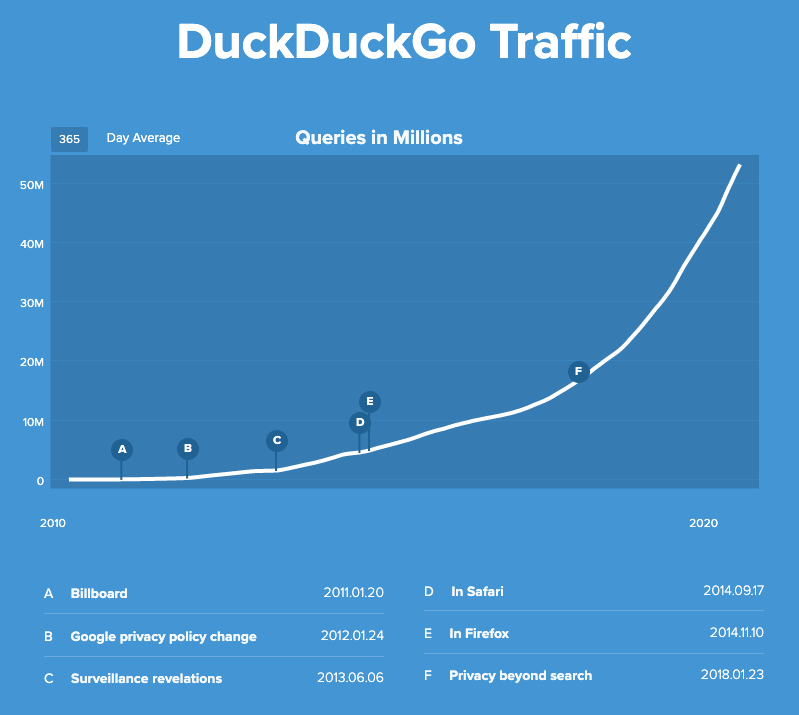
Looking at the growth from DuckDuckGo it looks impressive, however their all-time search volume of 52.000.000.000 is what Google had roughly in 2004. So they just don't compare yet from pure size. But clearly it shows that the interest in the privacy topic is increasing.
Ecosia is also a privacy aware search engine, with a special focus on using the advertisement money to do good. More precise they are planting trees. In Germany, they are the third largest search engine right now (after Google and bing and a bit before DuckDuckGo). But with less than 1% they are not playing any role at all. In Europe Ecosia is at 0.3% vs the 0.46% from DuckDuckGo.
Neeva is the latest company to join the search world, with a clear focus on the subscription model to remove the need to implement advertisement and instead using the space to create a better information representation. As it is currently based on the bing search engine and is trying to enhance its capabilities (similar to DuckDuckGo) it will be interesting to see how much value they can add and how much they are going to ask for. Interesting in this context is that the two founders Sridhar Ramaswamy and Vivek Raghunathan where both high ranking Google employees who have run advertisement businesses.
The Takeaway
When looking at the current competition, it isn't so clear if we really need a new business model. The privacy aware people could have gone to one of the alternatives already, the lock-in effect for the Google search (when available in the country) seems to be quite big.
Challenging the status quo is still something that has to go on, even when you have a quasi monopolist on the top with an overwhelming power. But what is yet to be answered is if someone is able to produce a clear better alternative.
If the push for a more privacy concerning world continues, what would stop Google from offering a subscription service? They could even include YouTube, GMAIL and Stadia in it.
Neeva for example is also claiming that they will allow the search engine to also search within private files. Creating enough trust for someone new to upload personal documents that can then show up in a traditional search might be difficult to achieve. While in contrast, as it was the case with Microsoft Office, when you start using a specific office tool at work, you are quite often using it also at home. Which puts Google once again in a great spot to just add search results for what you store in Google Drive and GMAIL.
What also isn't super clear to me is why someone would think the advertisement business model Google is using, was done because Google liked it so much. If you find enough people for a subscription, clearly Google would go for it. As for example YouTube Premium shows.
The path for Google is offering bundling for their offerings, I don't see how someone comes in and creates a 10x better search engine which makes everyone switch. The subscription model is difficult and the added value needs to be big, something I don't see others doing.
However, offering a privacy subscription for Google which removes you from all tracking and advertisement for a fixed monthly fee could be offered. By bundling multiple offers together you can also create something that, as a package, creates more value than having to pick everything individually.
That something like this works can be seen for example with Amazon Prime, free shipping combined with basic music and video offerings and some less known areas like photo storage.
Noteworthy in this context might also be that there are rumors around Netflix trying to offer multiple tiers for their subscription models to introduce advertisement as a means to get more people enter at a lower price. Twitter is also exploring subscription offerings as they are not even close to the Facebooks and Googles when it comes to advertisement possibilities.
The basic subscription model is great, implementing it is difficult. Is search a great fit for it? I doubt it heavily, but maybe that isn't as important. As Neeva seemingly is more interested in raising awareness for investors and customers to take away some share from DuckDuckGo and others and in some parts also from Google. Given the size of the search engine market even 1% market share would be potentially enough to create a profitable business.
